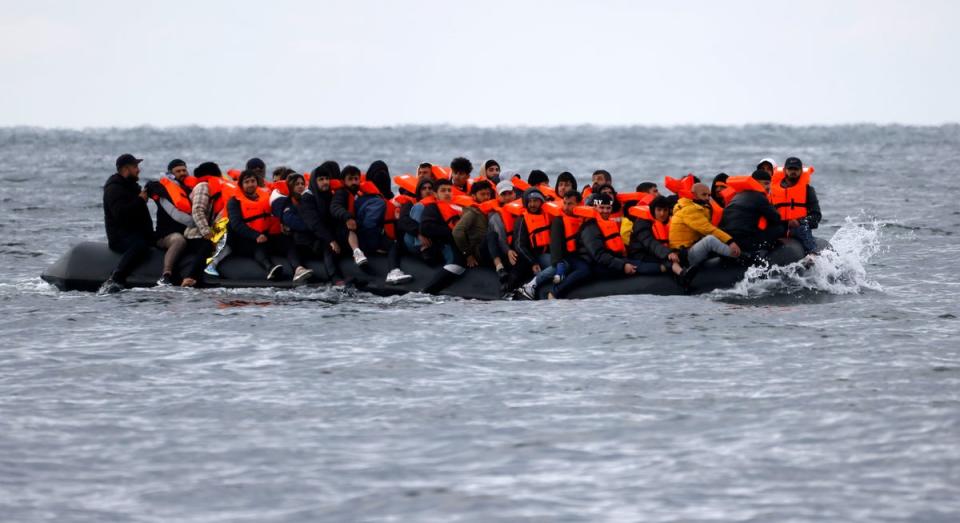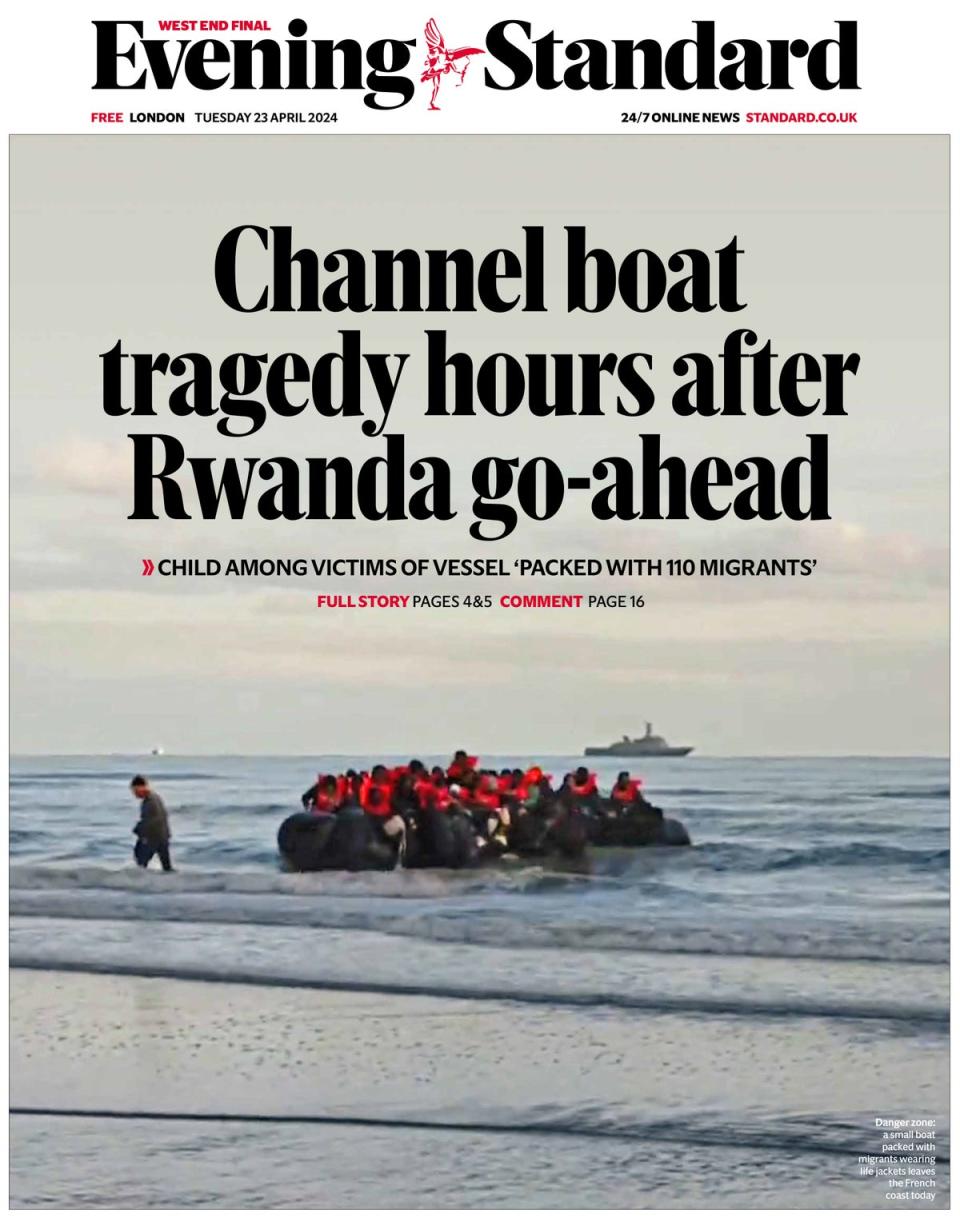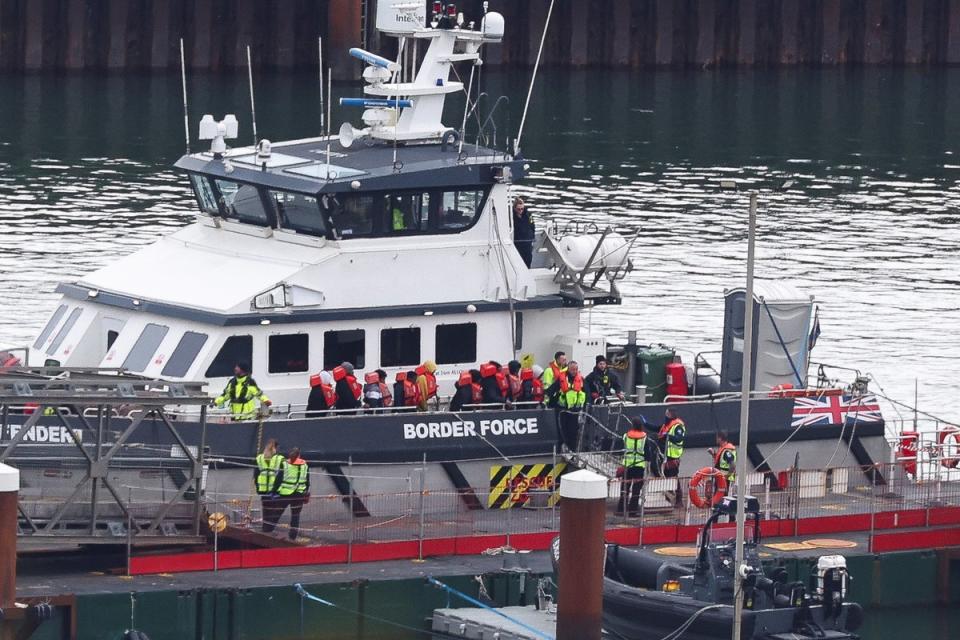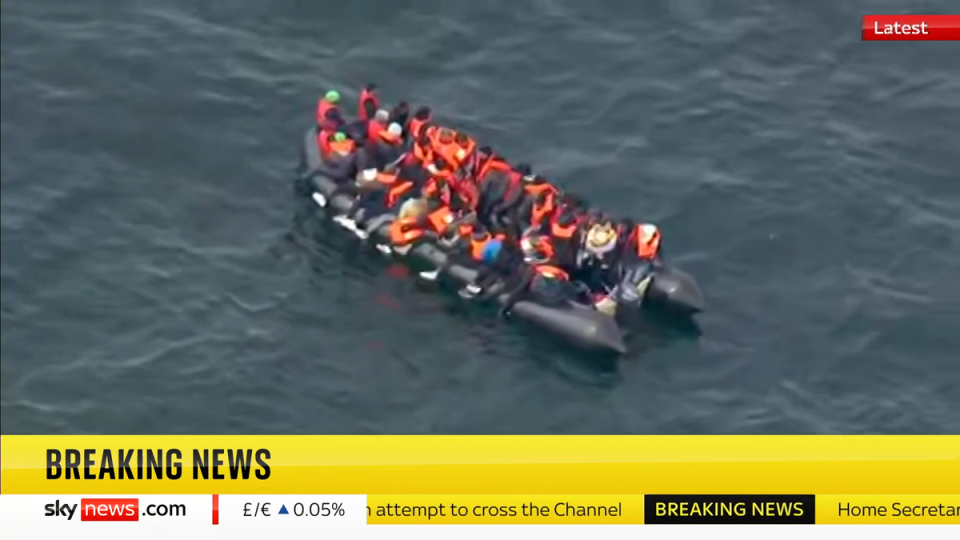Channel horror: Girl, 7, among five migrants who died after panic on boat 'packed with 110 people'
At least five migrants including a seven-year-old girl died attempting to cross the Channel in a small boat packed with 112 people, French officials said on Tuesday morning.
The fatalities were said to include three men, a woman and the young girl.
The Channel horror occurred as migrants tried to reach the UK from an area of the French coast near the town of Wimereux, in the Pas-de-Calais area.
"A tragedy occurred on a boat overloaded with migrants early this morning. We deplore the deaths of five people, a seven-year-old girl, a woman and three men,” said local official Jacques Billant
"The engine stopped a few hundred meters away from the shore and several people fell into the water.”
Four out of 47 people rescued where taken to a hospital. They are not in acute risk of dying, he added.
More than 50 people decided to remain on the boat and continue their journey towards Britain. 112 people were on the board the boat, he said.
Earlier, the French coast guard reported a number of a “lifeless bodies” had been discovered.
The small boat was said to have initially got stranded on a sandbank.

Panic was later reported to have broken out on the vessel as it set out to sea again.
“A crowd movement apparently occurred in the overloaded boat, causing several victims,” said one official.

Illegal migration minister Michael Tomlinson said reports of the deaths were “absolutely chilling”.
He told ITV’s Good Morning Britain: “We have had fatalities now in the Channel for nine consecutive months.”
A rescue mission involving three helicopters and a number of boats was launched.
News of the tragedy emerged just hours after Parliament backed Rishi Sunak’s controversial Rwanda Bill.
These tragedies have to stop.
I will not accept a status quo which costs so many lives.
This Government is doing everything we can to end this trade, stop the boats and ultimately break the business model of the evil people smuggling gangs, so they no longer put lives at risk. https://t.co/KtEYCDzJBi— James Cleverly🇬🇧 (@JamesCleverly) April 23, 2024
Home Secretary James Cleverly tweeted: “These tragedies have to stop.
“This Government is doing everything we can to end this trade, stop the boats and ultimately break the business model of the evil people smuggling gangs, so they no longer put lives at risk.”
Pictures also emerged on Tuesday morning of asylum seekers and economic migrants clambering into another overcrowded flimsy vessel, immediately raising questions over whether the Government’s Rwanda Plan will achieve its aim.
There were reports of ten boats setting off from France for Britain, carrying migrants on Tuesday.
British coastguards were reported to be bringing dozens of migrants ashore in Dover.
Mr Tomlinson claimed on BBC Breakfast that the Bill would have a “deterrent effect” over live pictures of a crowded dinghy leaving French shores to cross the Channel, said to be carrying migrants from Afghanistan, Eritrea and South Sudan.
The video of the migrants boarding the boat, some without life jackets, came shortly after MR Sunak declared on Tuesday that “nothing will stand in our way” in getting deportation flights off the ground after Parliament passed his controversial Rwanda Bill.
BREAKING: A suspected migrant boat has left the coast of France and heading in the direction of the UK.
It comes after Rishi Sunak's Rwanda Bill was finally passed through the Lords yesterday.https://t.co/xItZsH7tea
📺 Sky 501, Virgin 602, Freeview 233 and YouTube pic.twitter.com/z5jbeK343T— Sky News (@SkyNews) April 23, 2024
The Prime Minister also claimed that the legislation would change the “global equation on migration”.
Mr Sunak said the "tragic" incident reported in the Channel "underscores" the need for the deterrent effect of the Rwanda plan.
The Prime Minister told reporters flying with him on a plane to Poland: "There are reports of sadly yet more tragic deaths in the Channel this morning. I think that is just a reminder of why our plan is so important because there's a certain element of compassion about everything that we're doing.
"We want to prevent people making these very dangerous crossings.”
Peers finally bowed to the will of the elected Commons late on Monday and stopped their attempts to amend the bill which was branded “post-truth” legislation by one of them by stating Rwanda is safe for asylum seekers from Britain.
In an early morning statement, Mr Sunak said: “The passing of this landmark legislation is not just a step forward but a fundamental change in the global equation on migration.
“We introduced the Rwanda Bill to deter vulnerable migrants from making perilous crossings and break the business model of the criminal gangs who exploit them. The passing of this legislation will allow us to do that and make it very clear that if you come here illegally, you will not be able to stay.
“Our focus is to now get flights off the ground, and I am clear that nothing will stand in our way of doing that and saving lives.”

For weeks Lords have been pushing back against the plan, which seeks to deport asylum seekers who arrive in the UK on small boats to the African nation.
The government warned ‘enough is enough’ as the parliamentary stand-off continued late into Monday night and the Bill “ping ponged" between the two Houses.
Peers finally relented just before midnight and said they would not table any new amendments for debate.
It means the scheme will soon become law, with the Prime Minister pledging the first flights to Rwandan capital Kigali will take off "in 10 to 12 weeks".
Earlier on Monday, peers had tabled two amendments which were voted down by Tory MPs.
The upper chamber had wanted to ensure that Rwanda is not declared a “safe” country until an independent monitoring committee had ruled as such.
They also wanted people who had served with British forces abroad to be exempt from deportation, even if they came to the UK illegally on small boats.

The amendment, by former Labour defence secretary Lord Browne, was designed to particularly protect Afghan interpreters who had fled the Taliban.
But after hours of debate in both Houses opposition Lords did not push the demands following a government “concession”..
Peers initially refused to back down over a requirement that Rwanda could not be treated as “safe” until the Home Secretary made a statement to the Commons confirming as such, following consultation with the independent monitoring committee. They then sent the Bill back for debate in the Commons for a fifth time.
Mr Tomlinson said the Lords changes were "almost identical" to the previous ones rejected by MPs, and peers then gave way.
The legislation will now head for Royal Assent and become law.
The Bill and a treaty with Rwanda are intended to prevent further legal challenges to the stalled asylum scheme after the Supreme Court ruled the plan was unlawful.
As well as compelling judges to regard the country as safe, it gives ministers the power to ignore emergency injunctions.


